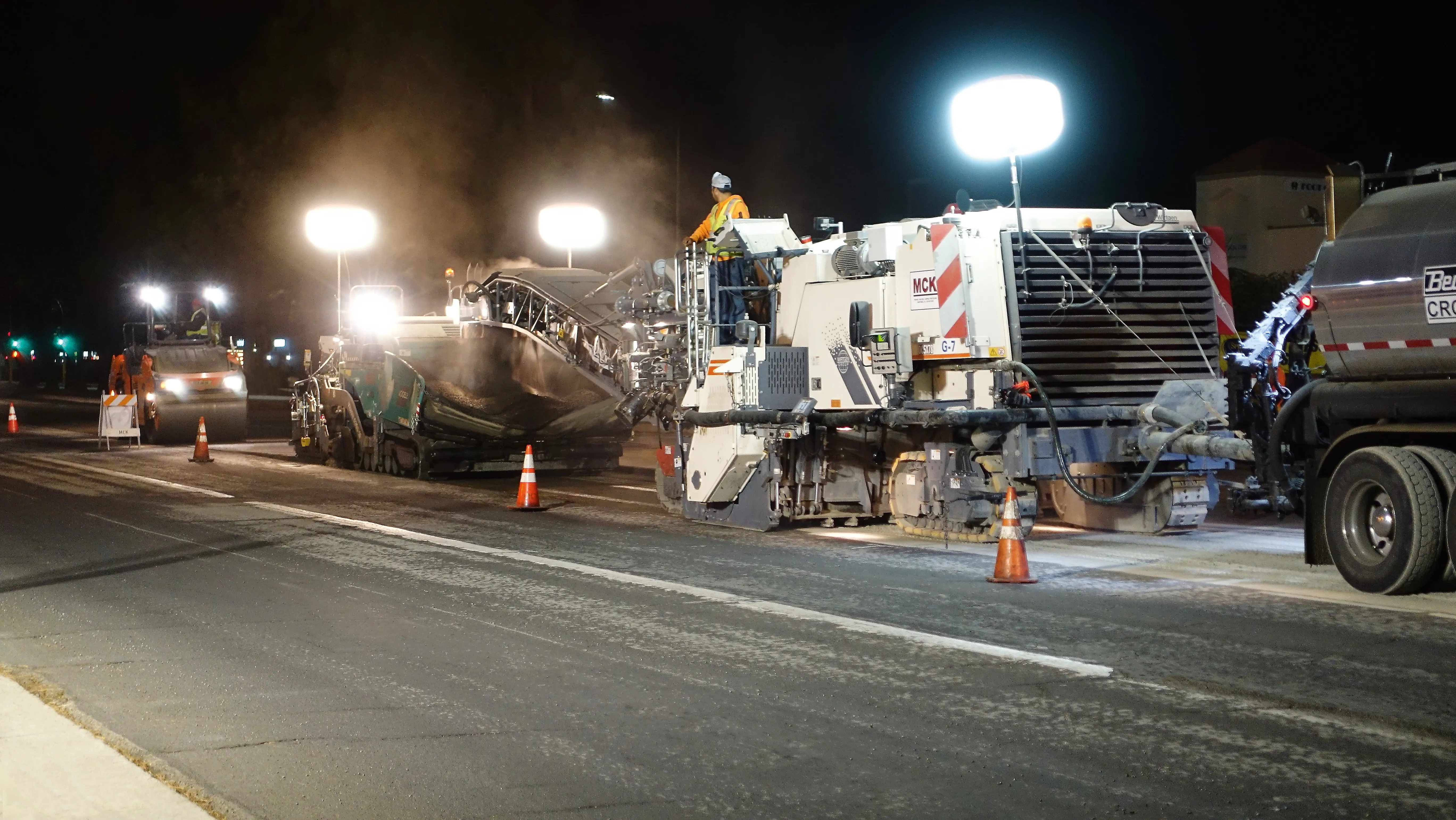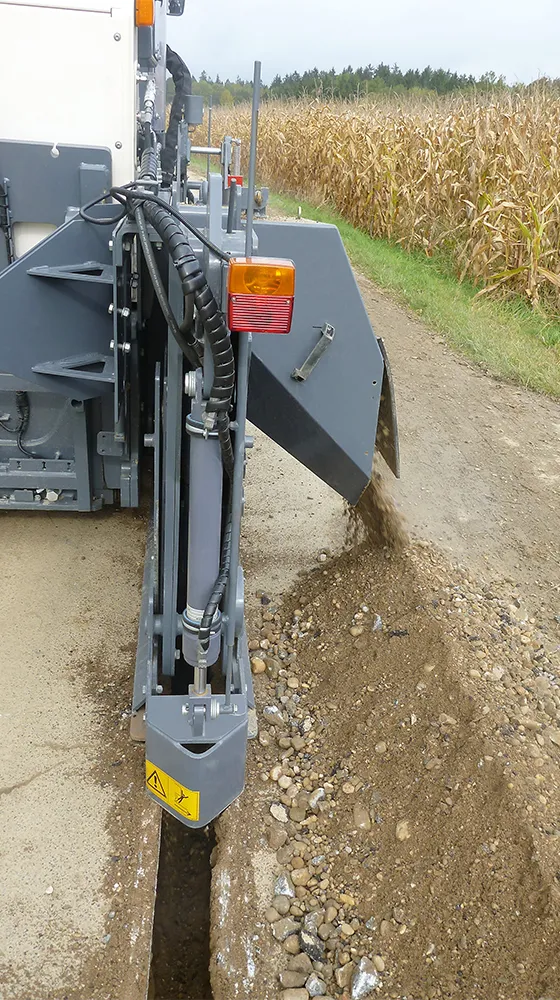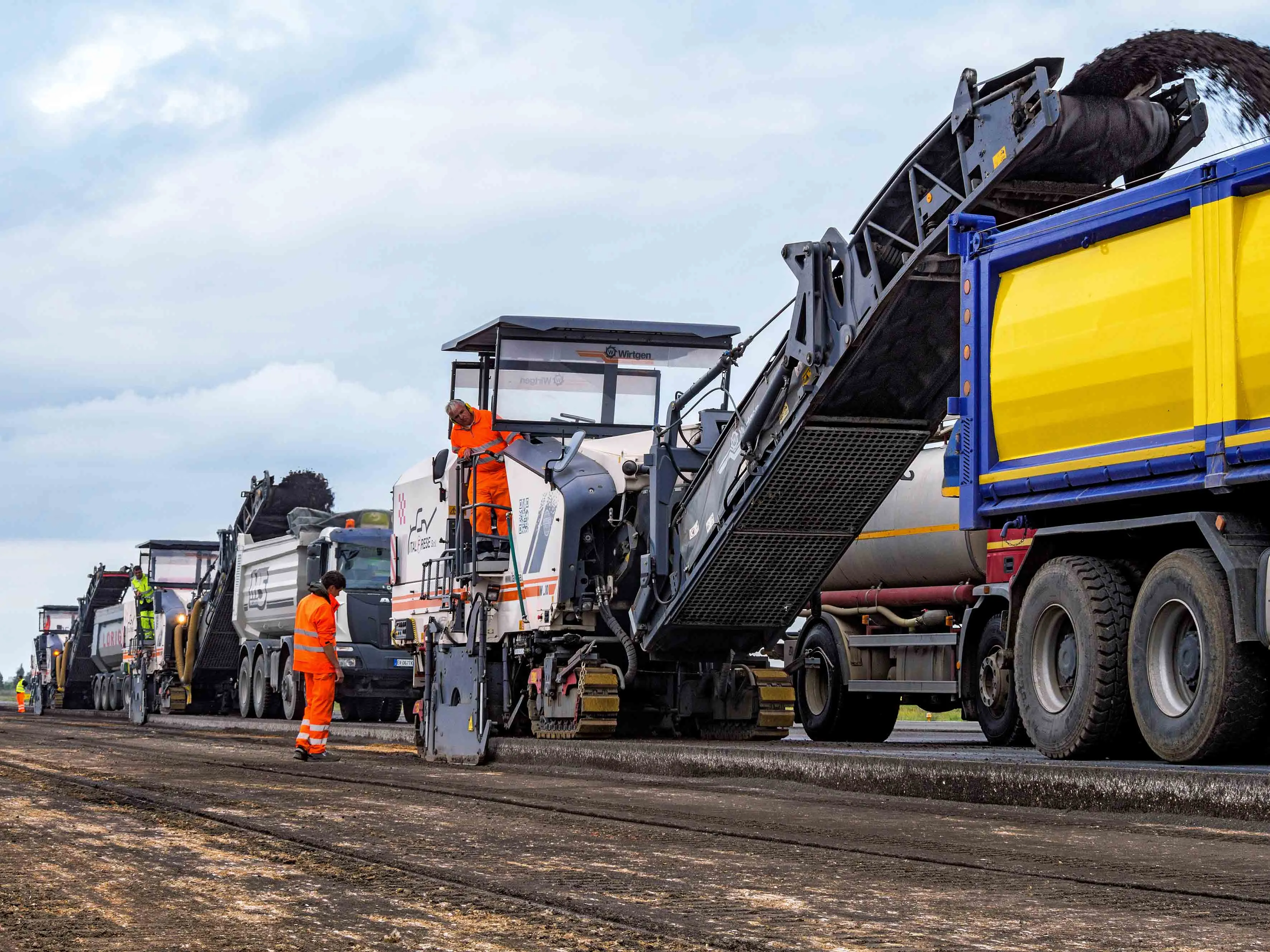
In the US’s Golden State – California –
The 3800 CR worked with a
The contractor, MCK Services, elected to use the process for this job to achieve a particularly high level of paving quality. In the down-cut process developed by Wirtgen, the milling drum rotates in the direction of travel, not against it as in the up-cut process. As a result, particle size can be precisely controlled when processing the material, especially on very brittle, thin, old asphalt roads.
One illustrative example is W. Campbell Avenue, a main road in San José in the heart of Silicon Valley. The Wirtgen cold recycler first milled off a 10.2cm layer of damaged asphalt across a width of nearly 3.9m, granulated it and mixed in the 1% pre-spread cement.
Two tank trucks supplied the recycler with hot bitumen and water via connected hose lines. Added pressurized air generates foamed bitumen. Microprocessor-controlled injection bars ensure precision injection of the foamed bitumen – in this case 2.5% – into the mixing chamber, where it is optimally processed with the granulated material. Ejectors positioned on the rotor then transfer the mix to the 3800 CR’s conveyor belt.
Meanwhile, traffic in front of the Starbright Theater, at the corner of Fulton Street, continued to flow by the recycling train, thanks to the fact that pavement rehabilitation is completed in a single pass. There were no trucks having to weave in and out of the lane. This increases safety and is a tremendous relief to the traffic system.
Wirtgen’s 3800 CR machine concept is geared to maximum output so that rehabilitation projects can be completed quickly. With this in mind, the conveyor system has an extremely high conveying capacity. The slewing and height-adjustable conveyor rapidly transfers material to the material hopper on the tracked paver, which then places a 10.2cm layer and pre-compacts the surface. The HD+ 110 VVHF tandem roller and GRW 280i pneumatic tyre roller from
“Thanks to the Wirtgen 3800 CR, we were able to fully comply with the traffic and budget requirements stipulated by the City of San José,” said Bob Garrigan, superintendent at MCK Services.
Around 9,600 fewer truck hours significantly reduced CO2 emissions, fuel consumption and construction traffic on streets that receive between 12,000 and 35,000 vehicles daily. In total, the city saved about US$1.5 million. Frank Farshidi, project manager for the city, said that cold recycling in-situ proved itself to be “extremely economical, environmentally-friendly and has the least impact on the public”.







